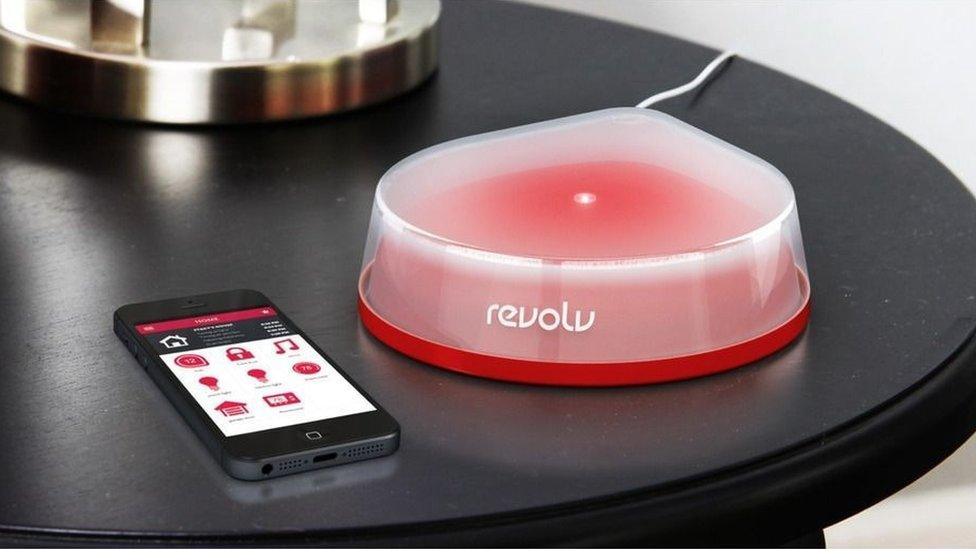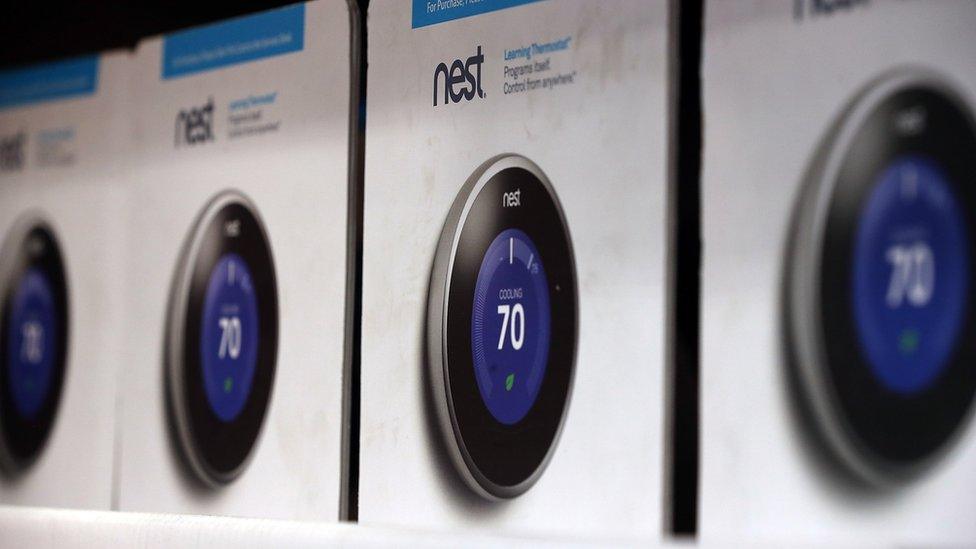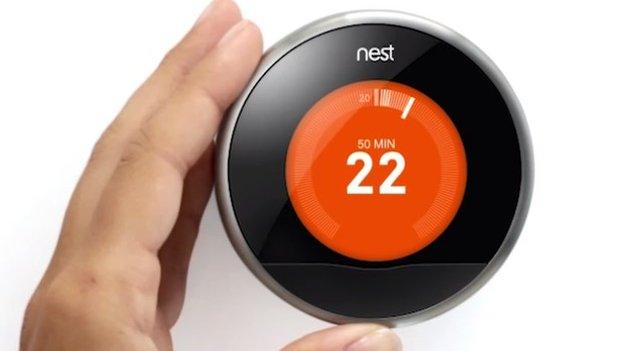The problem with forced tech obsolescence
- Published
- comments

San Francisco's 43-year-old Bart network needs replacement parts that are now obsolete
The Bay Area Rapid Transit (Bart) network links San Francisco with nearby cities such as Oakland and Berkeley.
It's been running since the 1970s, but is, like transport in many places around the world, struggling a bit under the pressure of a booming population and ageing infrastructure.
And so, right now they're busy upgrading various parts of the network, and making adjustments to trains so more people can get on during rush hour.
But there's a problem - some of the components that need replacing are obsolete. And so Bart engineers are searching on eBay to pick up what they need. eBay!
"It's like buying a computer in 1980 and trying to keep it alive today," Bart worker Richard Severo told NBC Bay Area, external.
"You go back and say… can you repair this? And they are going to look at you and say: this thing belongs in a museum."
Frustrating, sure, but surprising? Probably not. Bart is 43 years old. It's no wonder aspects of it are no longer being made.
But how soon is too soon when it comes to technology being made obsolete?
Revolving door
Consider that question and apply it to the recent news that Nest - the smart thermostat company owned by Google parent company Alphabet - is giving up on its Revolv product.
Revolv is a little device that you can use to control other smart devices in your home, like light bulbs or entertainment equipment. There's a clever back-end that means you can control and monitor your home using an app, wherever you are. It's part of the connected home future companies have been trying to get the public excited about for a few years now.

Tough luck - Revolv will be disabled next month
One person excited by that possibility was Arlo Gilbert - chief executive of health app specialists Televero - who has Revolv set up in his home. He calls controlling all of his devices like conducting a "beautiful orchestra of home technology".
The orchestra will stop playing on 15 May when Nest switches the Revolv system off. To be clear - that doesn't just mean it will no longer be updated. It means it'll stop functioning altogether. Cease to be. An ex-hub.
"My house will stop working," wrote Mr Gilbert, external.
"My landscape lighting will stop turning on and off, my security lights will stop reacting to motion, and my home-made vacation burglar deterrent will stop working. This is a conscious, intentional decision by Google/Nest."
Unlike the scarce parts needed by the poor folk trying to maintain the Bart service, Mr Gilbert isn't dealing with old, niche hardware. Revolv was being sold up until September 2014.
Is that acceptable? Should the copmany be allowed to make a decision like that, rendering a $300 (£213) product useless because it doesn't see any lucrative potential for it?
Writing in Wired magazine, external, Klint Finley described the move as proof that the so-called "Internet of Things" cannot be trusted.
"We generally expect our old gadgets to still be useful as hand-me-downs or backup devices. We don't expect to have to send them off to landfills just because the company we bought them from decided to stop supporting them," he wrote.
"Until that changes, the Internet of Things will remain a dream."
Compensation
Nest sees it this way.
"Revolv was a great first step toward the connected home," it said in a statement. "But we believe that Works with Nest is a better solution and are allocating resources toward that program.
"Third-party developers interested in building integrations with Nest products can do this by building on Nest's open APIs, available through the Works with Nest developer program."

Should Nest make a commitment to supporting a device for a minimum amount of time?
It has urged Revolv customers to contact Nest to discuss options, external, including compensation. We don't know yet if that compensation will be a full refund.
But it's the inconvenience highlighted by Arlo Gilbert that makes the move, and the manner in which it has happened, more frustrating.
Getting a new smartphone is a relatively simple, even enjoyable, process - you pick up your new one, import what you need from the old one, and off you go. New phone!
But will you want to do the same with smart appliances? I can't see anyone is eagerly counting down the days until the latest model of their smart fridge is released.
So, unlike most consumer tech, where we have a desire to have the latest version, we'll only look to replace internet-of-things devices when they stop working altogether through old age.
Not, surely, when the company that makes it decides it wants to stop looking after it.
Ownership
So, what's the alternative?
We can't force Nest or indeed any company to promise to look after (failing) products until the end of time just to keep people like Mr Gilbert happy. But nor should consumers lose out when a company loses interest.
Some have suggested Nest should make the Revolv platform open source. Open up the back-end to allow some other company, or team of volunteers even, to take up the reins and keep Revolv going for those who need it.
Or perhaps companies selling connected home devices should make a public commitment about future support. Not just a typical warranty, but a declaration that the device you're spending lots of money on will not be forcibly disabled by the manufacturer within, say, five years.
Failing all that, how about making devices that don't become utterly useless if the cloud service powering them is shut down?
But then maybe, as Mr Gilbert also suggests, we need to look differently at what "ownership" means.
If Alphabet can decide to kill off a device in your home, was it ever really yours? Perhaps these devices should be rented rather than bought, and the costs adjusted accordingly.
From the sounds of it, external, Nest is facing a lot of problems behind the scenes. What it didn't need was consumer anger on top.
Revolv wasn't a huge product. That's why Nest binned it. But it's the principle that irks Mr Gilbert and others.
Maybe think of it like this - isn't there enough e-waste in the world without Alphabet intentionally creating more?
Update, Friday 8 April: Google has asked me to stress that Nest is an Alphabet company, not a Google one. Alphabet is Google's parent company. Nest, while bought by Google when it was just Google, is no longer part of Google. I hope that's clear.
Follow Dave Lee on Twitter @DaveLeeBBC, external or on Facebook, external
- Published30 March 2016

- Published17 June 2015

- Published24 June 2014
